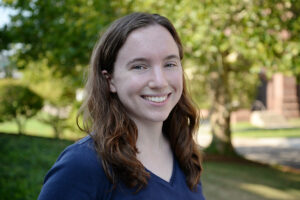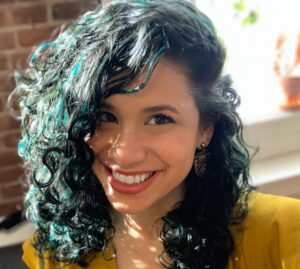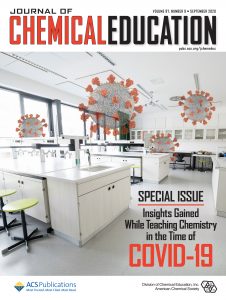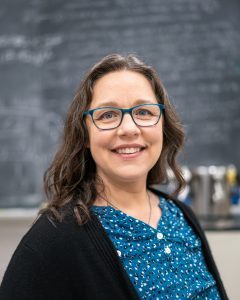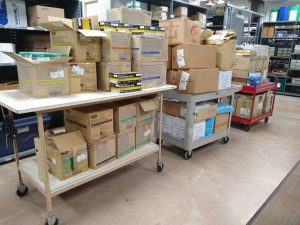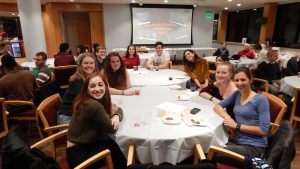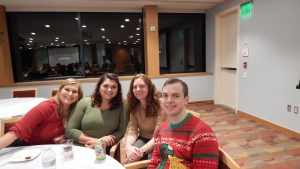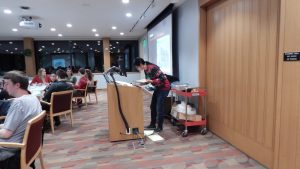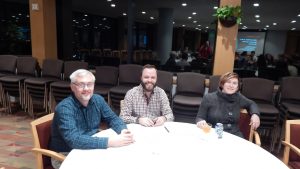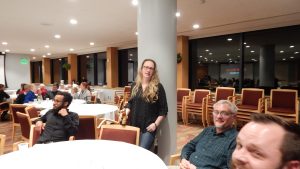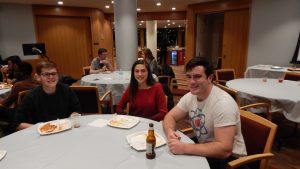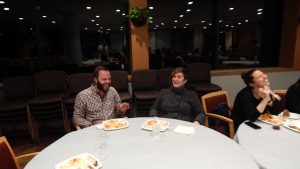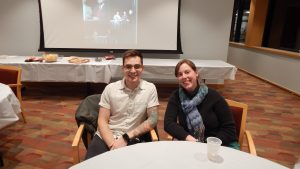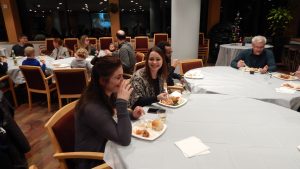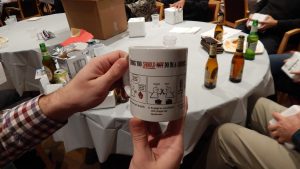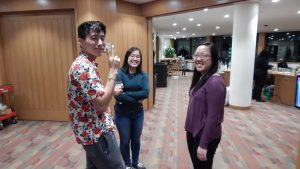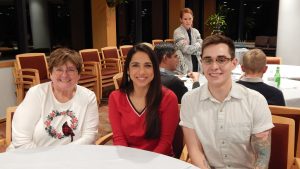
The Chemistry Department is delighted to welcome Dr. Benjamin Elling as an Assistant Professor of Chemistry. His recently renovated lab, in the space formerly occupied by Albert J. Fry, will investigate new methods to synthesize and reprocess polymers. This semester he will be teaching CHEM 373, an upper-level course on polymer chemistry.
Professor Elling received his BA in chemistry from Cornell University, where he synthesized polymers for anion exchange membranes in the lab of Geoff Coates. He then attended Stanford University, where he became the first PhD student of Yan Xia and developed methods for sequence-specific polymerization via the ring-opening metathesis of substituted cyclopropenes. Prior to his appointment at Wesleyan, Professor Elling was a postdoctoral scholar in the lab of Professor Will Dichtel, where he designed new covalent adaptable networks and investigated strategies for mixed plastic compatibilization.
Here at Wesleyan, Professor Elling will combine his interests in synthetic methods development and sustainability. His lab will focus on leveraging strain energy to create polymers capable of controlled degradation, reprocessing thermosets through novel exchange chemistries, and incorporating renewable building blocks such as carbon dioxide into materials. The Chemistry Department is very pleased to have him join us.

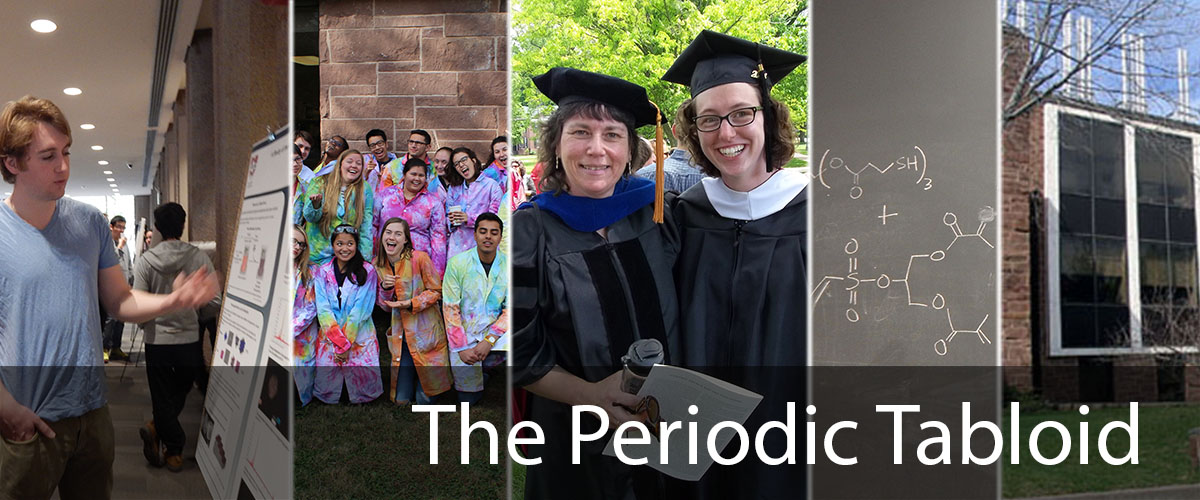

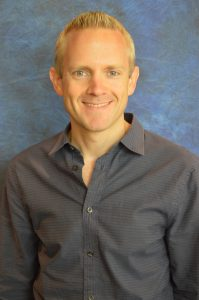
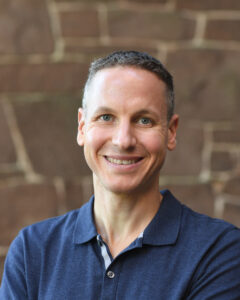
 It is with great pleasure that the Chemistry Department announces the promotion of Dr. Michelle Personick, who was conferred tenure by the Board of Trustees at its most recent meeting. In the summer of 2015, Michelle joined the faculty at Wesleyan University as an assistant professor of chemistry, where her independent research program continues to include an assortment of colorful noble metals. Dr. Personick’s research in inorganic chemistry is focused on developing tailored metal nanoparticles that function as improved catalysts for energy- and resource-efficient chemical synthesis and the clean production of energy. Her goal is to transform the overall energy landscape and offset the driving forces of climate change. She has published numerous peer-reviewed articles and one book chapter, and her work has been supported by grants from the National Science Foundation, Army Research Office, and American Chemical Society Petroleum Research Fund. Professor Personick offers courses on Principles of Chemistry II, Advanced Inorganic Chemistry, Chemistry of Materials and Nanomaterials, and Nanomaterials Laboratory. Join us in celebrating this momentous achievement!
It is with great pleasure that the Chemistry Department announces the promotion of Dr. Michelle Personick, who was conferred tenure by the Board of Trustees at its most recent meeting. In the summer of 2015, Michelle joined the faculty at Wesleyan University as an assistant professor of chemistry, where her independent research program continues to include an assortment of colorful noble metals. Dr. Personick’s research in inorganic chemistry is focused on developing tailored metal nanoparticles that function as improved catalysts for energy- and resource-efficient chemical synthesis and the clean production of energy. Her goal is to transform the overall energy landscape and offset the driving forces of climate change. She has published numerous peer-reviewed articles and one book chapter, and her work has been supported by grants from the National Science Foundation, Army Research Office, and American Chemical Society Petroleum Research Fund. Professor Personick offers courses on Principles of Chemistry II, Advanced Inorganic Chemistry, Chemistry of Materials and Nanomaterials, and Nanomaterials Laboratory. Join us in celebrating this momentous achievement!